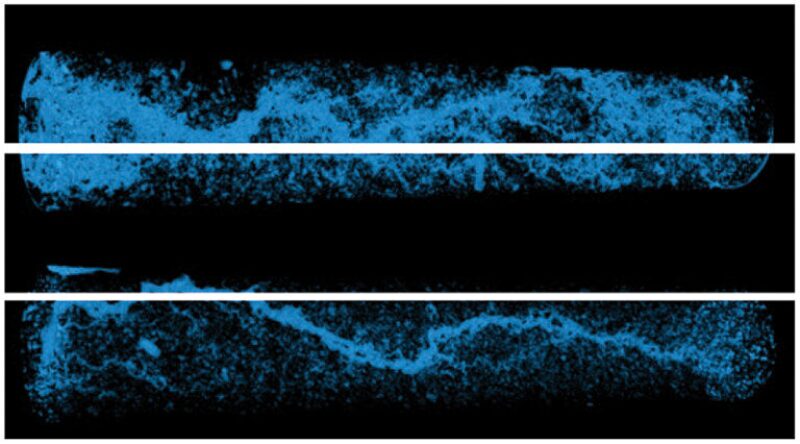The complete paper discusses a method of stimulating deep, high-temperature offshore wells by combining an efficient single-phase retarded acid (SPRA) system and an engineered, degradable, large-sized particulate and fiber-laden diverter (LPFD). The method was introduced in a well in the Arabian Gulf, where it helped the operator achieve effective, uniform stimulation.
Introduction
Treatment of deep, high-temperature carbonate reservoirs such as those in the Arabian Gulf presents a series of complex and related challenges to achieve effective and uniform stimulation. Elevated temperatures and heterogeneous formations in these reservoirs require robust treatment fluids that can withstand the harsh environment to achieve good reservoir contact with an acid system along the entire interval of interest.
Emulsified acids have been the preferred stimulation choice of major operators in this region because of these acids’ superior corrosion inhibition and deeper penetration into the reservoir. However, using emulsified acid adds to the complexity of the stimulation operation by contributing to higher friction pressures, limiting pump rates, and requiring elaborate mixing procedures that constrain offshore rig-based interventions. Operators are searching for simplified acid systems that can deliver friction pressure similar to that of unmodified hydrochloric acid (HCl) and reservoir contact performance equivalent to that of emulsified acid.


